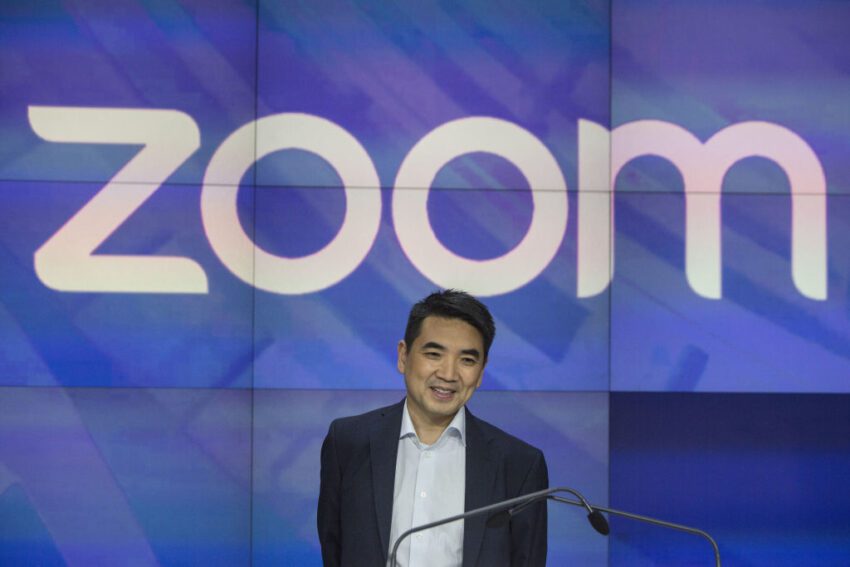
zoom ceo eric yuan says ai will Zoom CEO Eric Yuan has made a bold prediction regarding the future of work, suggesting that advancements in artificial intelligence (AI) could lead to a significant reduction in the traditional workweek.
zoom ceo eric yuan says ai will
AI’s Impact on the Workweek
During a recent interview, Yuan expressed his belief that the integration of AI technologies into various sectors will enable employees to accomplish their tasks more efficiently. He anticipates that this efficiency could lead to a workweek of just three to four days within the next few years. This vision aligns with a growing trend among companies exploring flexible work arrangements, particularly in the wake of the COVID-19 pandemic.
The Rationale Behind a Shorter Workweek
Yuan’s assertion is rooted in the premise that AI can automate repetitive tasks, streamline workflows, and enhance productivity. As AI tools become more sophisticated, they are expected to take over mundane responsibilities, allowing workers to focus on higher-value activities that require human creativity and critical thinking. This shift could fundamentally alter how businesses operate and how employees engage with their work.
For instance, customer service roles could see a transformation with AI chatbots handling routine inquiries, freeing up human agents to tackle more complex issues. Similarly, in sectors like marketing and sales, AI-driven analytics can provide insights that help teams make informed decisions more quickly. As a result, the overall workload may decrease, paving the way for shorter workweeks.
Historical Context
The concept of a shorter workweek is not entirely new. Over the past century, there have been numerous movements advocating for reduced working hours. The introduction of the 40-hour workweek in the early 20th century was a significant milestone, driven by labor movements seeking better working conditions. As technology has evolved, so too have discussions around work-life balance and employee well-being.
In recent years, several companies have experimented with four-day workweeks, reporting positive outcomes such as increased employee satisfaction, reduced burnout, and improved productivity. These trials have sparked interest in the potential for a more widespread adoption of shorter workweeks, especially in light of the changing nature of work brought about by the pandemic.
Stakeholder Reactions
The idea of a shorter workweek has garnered mixed reactions from various stakeholders, including business leaders, employees, and economists. While many employees welcome the prospect of more leisure time, some employers express concerns about maintaining productivity and meeting business demands.
Employee Perspectives
For employees, the prospect of a three to four-day workweek is enticing. Many workers have reported feeling overwhelmed by their workloads, especially during the pandemic. The promise of a shorter workweek could lead to improved mental health, better work-life balance, and increased job satisfaction. Surveys conducted by various organizations have shown that employees value flexibility and are more likely to stay with companies that offer it.
Employer Concerns
On the other hand, some employers are apprehensive about the implications of a shorter workweek. Concerns include potential disruptions to workflow, the challenge of coordinating schedules among teams, and the fear of losing competitive advantage if productivity declines. Employers may also worry about the financial implications of reduced hours, particularly in industries where hourly wages are the norm.
To address these concerns, proponents of a shorter workweek argue that the focus should shift from hours worked to outcomes achieved. By measuring productivity based on results rather than time spent at a desk, companies may find that they can maintain or even enhance performance while offering employees more flexibility.
Technological Advancements Driving Change
AI is not the only technology influencing the future of work. The rise of remote work, facilitated by tools like Zoom, has already changed how companies operate. As organizations adapt to hybrid work models, the integration of AI and other technologies will play a crucial role in shaping the work environment.
Remote Work and AI Integration
The COVID-19 pandemic accelerated the adoption of remote work, prompting companies to invest in digital tools that enhance collaboration and communication. As remote work becomes more entrenched, AI technologies can help streamline processes, improve communication, and foster a sense of connection among distributed teams.
For example, AI-driven project management tools can help teams prioritize tasks and allocate resources more effectively, ensuring that projects remain on track even when team members are working from different locations. Additionally, AI can facilitate virtual meetings by providing real-time transcription and translation services, making it easier for teams to collaborate across language barriers.
Future Workforce Skills
As AI takes on more routine tasks, the demand for workers with advanced skills will likely increase. Employees will need to adapt by developing competencies in areas such as data analysis, critical thinking, and emotional intelligence. Companies may need to invest in training and development programs to equip their workforce with the skills necessary to thrive in an AI-driven environment.
This shift in skill requirements could also influence educational institutions, prompting them to revise curricula to better prepare students for the future job market. Emphasizing STEM education, critical thinking, and adaptability will be essential in ensuring that the workforce is ready for the changes ahead.
Global Perspectives on Workweek Reduction
The conversation around shorter workweeks is not limited to the United States. Countries around the world are exploring similar initiatives, with varying degrees of success. For instance, New Zealand has seen positive results from trials of a four-day workweek, while countries like Sweden have implemented shorter workweeks in specific sectors, such as healthcare.
International Case Studies
In New Zealand, companies participating in a four-day workweek trial reported increased productivity and employee satisfaction. The initiative aimed to assess whether a reduced workweek could lead to better outcomes for both employees and employers. The results indicated that employees were more engaged and motivated, leading to improved performance.
Similarly, in Sweden, a trial conducted in the healthcare sector found that a shorter workweek led to reduced burnout among staff and improved patient care. These examples demonstrate that shorter workweeks can be beneficial, but they also highlight the need for careful implementation and consideration of industry-specific factors.
Conclusion: A New Era of Work?
As Eric Yuan’s predictions about AI and the future of work gain traction, the conversation around shorter workweeks will likely continue to evolve. The integration of AI technologies presents both opportunities and challenges, requiring a reevaluation of traditional work structures.
While the prospect of a three to four-day workweek may seem ambitious, the ongoing exploration of flexible work arrangements suggests that a shift in how we approach work is already underway. As companies navigate this transition, the focus will need to be on fostering a culture of productivity and well-being, ensuring that employees can thrive in an increasingly automated world.
Source: Original report
Was this helpful?
Last Modified: October 28, 2025 at 1:37 pm
1 views















